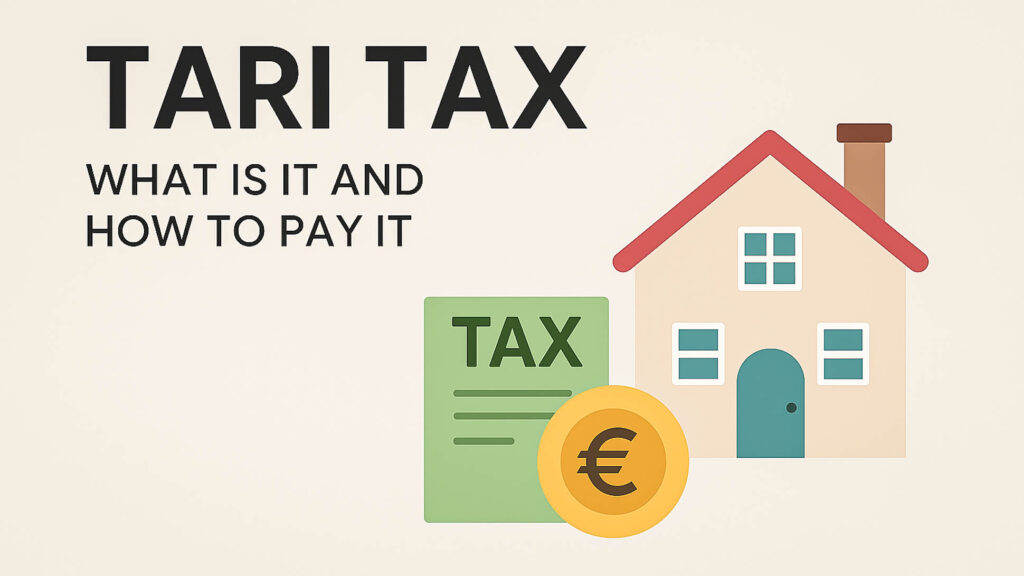
If you own or use a property in Italy, you’ll come across TARI. This is the municipal tax that funds waste collection and disposal. Understanding what it covers and how to pay it helps avoid fines and keeps you in line with Italian law.
👉 As with all practical matters, you can check our article: Italian Bureaucracy and Everyday Life Guide for Foreigners.
Table of Contents
- What is TARI?
- Who Pays TARI?
- How is TARI Calculated?
- How to Register for TARI
- How to Pay TARI
- Payment methods:
- Deadlines
- Penalties for Late Payment
- Conclusion
What is TARI?
TARI stands for Tassa sui Rifiuti – garbage tax. It was introduced in 2014 to replace older waste-related taxes. Municipalities use TARI revenues to pay for:
- Household and commercial waste collection
- Street cleaning
- Waste treatment and disposal
Every municipality (Comune) manages TARI locally, so rates and methods can vary.
Who Pays TARI?
- Property owners – If you own a home, even if it is not your primary residence.
- Tenants – If you rent a property for more than 6 months, you are usually responsible for paying.
- Businesses – Commercial premises must also pay, with rates calculated differently depending on the type of activity.
How is TARI Calculated?
The calculation usually depends on:
- Property size (square meters) – Based on cadastral data.
- Number of occupants – Registered residents or declared users.
- Municipal rates – Set by your Comune each year.
Because it’s a local tax, two similar homes in different towns might pay different TARI amounts.
How to Register for TARI
When you buy or rent a property, you must declare your occupancy at the local Comune (Ufficio Tributi). This activates your TARI account. If you don’t declare, the Comune can still charge you retroactively.
How to Pay TARI
Most municipalities send a payment notice once or twice a year. Inside you’ll find:
- The total due
- Installment options (usually 2 or 3 payments)
- Pre-filled payment slips (F24 or PagoPA)
Payment methods:
- F24 form – At banks, post offices, or online via home banking.
- PagoPA – An increasingly common digital system for local taxes.
- Directly at the Comune – Some offices allow in-person payments.
Deadlines
Deadlines are set locally, but most municipalities require payment in June (first installment) and December (balance). Always check the exact due dates in your notice.
Penalties for Late Payment
Failing to pay TARI on time results in:
- Interest charges (daily)
- Administrative penalties (usually 30% of the unpaid tax)
- Possible enforcement actions by the Comune
Conclusion
TARI is a straightforward but unavoidable cost of owning or renting property in Italy. By registering promptly with your Comune and using the official payment slips, you’ll avoid surprises.
For more on property-related costs, see our guide on Understanding Italian Property Taxes.
